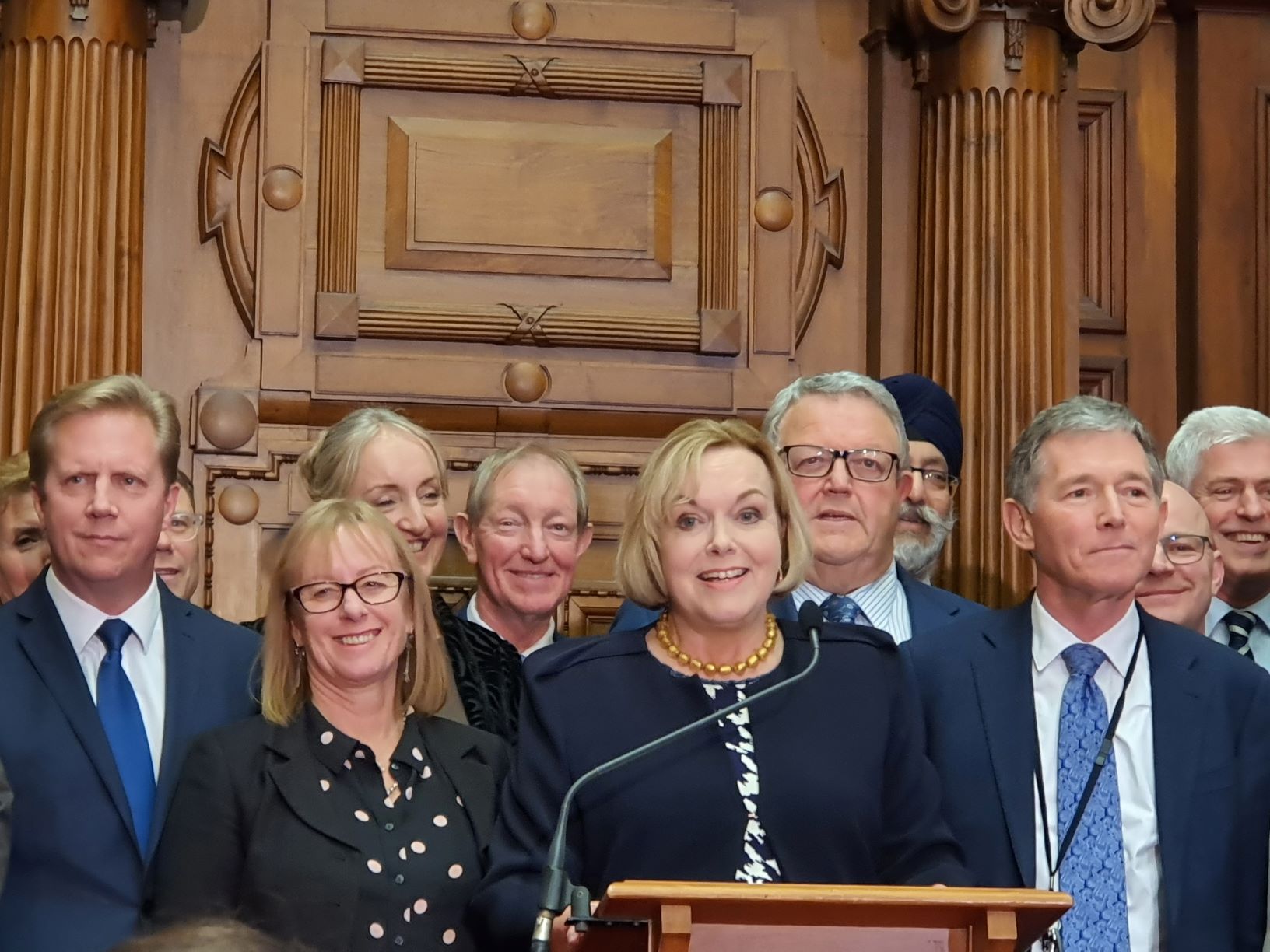In my opinion, the most overlooked attribute of political leadership is a sense of humour. I don’t claim that it’s the most important attribute, mind you, just that it’s given the least credit relative to its significance.
Take the case of National’s new leader, Judith Collins. And yes, she’s therefore my new boss so please infer from that all obvious disclaimers about the fact that I’m not an impartial commentator.
Almost any item in the press about Judith’s considerable skill as a politician will reference other key attributes invariably associated with her, such as the level of determination and doggedness needed to survive and thrive over a period of 18 years in Parliament. Fair enough.
The ability of any leader to make an audience laugh is seriously underrated though, including in the case of Judith. That brings several key advantages, which I’ll run through briefly.
Just before we go through those, though, indulge me for a minute by considering head-to-head match ups in recent political history. I don’t have any statistical basis to offer for this claim but I’d wager that more often than not the funnier candidate wins. It’s not an exact science, political science (even for those who insist on calling it a science), as election results inevitably turn on a number of complex factors. It’s impossible to separate out the influence of humour from the the candidates’ other attributes, of course. And humour is naturally a form of beauty that’s very much in the eye of the beholder.
All that said, consider how much more amusing and therefore charismatic the likes of Boris Johnson and Donald Trump were than Jeremy Corbyn and Hillary Clinton respectively. I expect that even partisans on the other side of those equations would acknowledge the humour deficit if nothing else. In New Zealand, take your pick across the years but an easy and obvious comparison in this regard (for my money, at least) would be John Key vs Helen Clark. We like those who make us laugh and we trust those we like. And we vote for those whom we trust.
Anyway, as I’ve said, I believe that there are a number of key reasons that humour is an indispensable weapon in the armoury of a modern day politician. Partly because it’s career-enhancing and partly because it’s true, I’d observe that Judith Collins is highly adept across each of these.
First, a witty one-liner is easily converted into a headline. It’s never been more important than in this era where social media chatter dominates the public square.
Second, being able to enjoy a laugh establishes a personal connection between the person wanting votes and the person who votes. If the politician is prepared to make the laugh at their own expense, so much the better, as that demonstrates confidence.
Third, a good sense of humour is often a proxy for intelligence. The word “wit” occupies this overlapping semantic space for a reason. If a leader can reasonably reduce a complex issue to a short, simple soundbite that provides both light and heat (or a “burn”, as they say nowadays) then it’s a fair bet that they have a good analytical mind.
I’d argue that humour is important for any politician in 2020 but especially vital for the Leader of the Opposition in the run-up to an election. Now, let’s see who has the wit to lead.
If you enjoyed this BFD article please consider sharing it with your friends.

